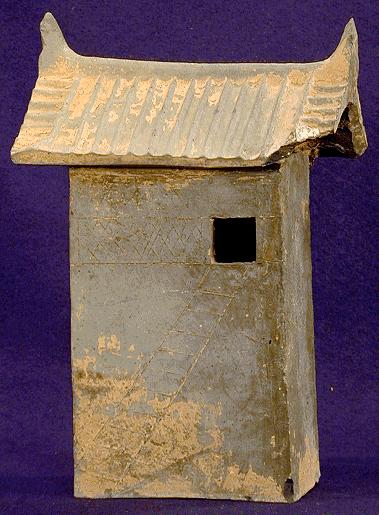http://www.bergen.org/AAST/Projects/ChinaHistory/CHIN.HTM
The Great Wall of China was one of the greatest public works ever built by an empire in the entire world. It was built by the Chinese to keep the Xiang Nu, or mongolians, from attacking the Chinese that lived on the Mongolia. The wall built by the Han Dynasty was just an extension of the Qin great wall. The wall was extended all the way to Xin Jiang in the west. Beacon towers were erected along the wall to warn the other towers of attack. Ancient records report that at least one million slaves and prisoners of war were used to create this defensive wall. Many laborers died from exhaustion and starvation while working on this colossal task, their bodies added to the rubble and masonry as the quickest means of disposal. For centuries, the Wall was known as "the longest cemetery in the world." Along with the construction of the Great Wall, laborers had to build small canals and reservoirs. All peasants who were farmers were required to harvest their grain and put it in granaries/
(http://hyperion.advanced.org/18778/great.htm)
 times. They were an important public work because they made sure that
the empire could go on during a drought or famine. Every farmer was required
to bring all their excess grain to granaries. Canals were also an important
public work because it allowed more transportation and irrigation opportunities.
Farmers could now be successful while farming away from the main rivers.
As well as granaries and canals, laborers also had to build roads throughout
china. The roads were built for ease of transportation and trade.
times. They were an important public work because they made sure that
the empire could go on during a drought or famine. Every farmer was required
to bring all their excess grain to granaries. Canals were also an important
public work because it allowed more transportation and irrigation opportunities.
Farmers could now be successful while farming away from the main rivers.
As well as granaries and canals, laborers also had to build roads throughout
china. The roads were built for ease of transportation and trade.